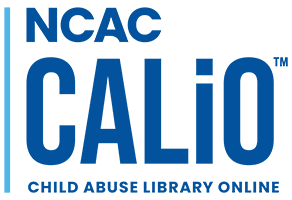Log into CALiO™or contact the librarians to obtain publications.
Blything, L. P., Davies, R., & Cain, K. (2016). Young children’s comprehension of temporal relations in complex sentences: The influence of memory on performance. Child Development, 86(6), 1922-1934. DOI:10.1111/cdev.12412
Cleveland, K. C., & Quas, J. A. (2016). Adults’ insensitivity to developmental changes in children’s ability to report when and how many times abused occurred. Behavioral Sciences and the Law, 34(1), 126-138. DOI:10.1002/bsl.2211
Droit-Volet, S. (2016). Development of time. Current Opinion in Behavioral Sciences, 8, 102-109. DOI:10.1016/j.cobeha.2015.02.003
Friedman, W. J. (2007). The development of temporal metamemory. Child Development, 78(5), 1472-1491. DOI:10.111/j.1467-8624.2007.01078x
Friedman, W. J., & Lyon, T. D. (2005). Development of temporal-reconstructive abilities. Child Development, 76(6), 1202-1216. DOI:10.1111/j.1467-8624.2005.00844.xi1
Friedman, W. J., Reese, E., & Dai X. (2011). Children’s memory for the times of events from the past years. Applied Cognitive Psychology, 25, 156-165. DOI:10.1002/acp.1656
Lambert, F. R., Lavenex, P., & Lavenex, P. B. (2017). The “when” and the “where” of single-trial allocentric spatial memory performance in young children: Insights into the development of episodic memory. Developmental Psychobiology, 59(2), 185-196. DOI:10.1002/dev.21479
McWilliams, K., Lyon, T. D., & Quas, J. A., (2016). Maltreated children’s ability to make temporal judgments using a recurring landmark event. Journal of Interpersonal Violence, 34(4), 873-883. DOI:10.1177/0886260516645812
Orbach, Y., & Lamb, M. E. (2007). Young children’s references to temporal attributes of allegedly experienced events in the course of forensic interviews. Child Development, 78(4), 1100-1120. DOI:10.1111/j.1467-8624-2007.01055.x
Wandrey, L., Lyon, T. D., Quas, J. A., & Friedman, W. J. (2012). Maltreated children’s ability to estimate temporal location and numerosity of placement changes and court visits. Psychology, Public Policy, and Law, 18(1), 79-104. DOI:10.1037/a0024812
Zhang, M., & Hudson, J. A. (2018). The development of temporal concepts: Linguistic factors and cognitive processes. Frontiers in Psychology, 9. DOI:10.3389/fpsyg.2018.02451
National Children’s Advocacy Center. (2020). Children’s Abilities to Date Events: Fact Sheet.
